Which household bill do we spend the most on in winter? Heating right? Is there a way we could automate the whole system to hopefully save us money? yes sir there is. It’s called smart heating, it’s easily programmable, you can control it from your phone, it can even tell when you’re on your way home. But you need help with how to choose smart heating, what do I buy? Which brand do I go for? We will try and answer those very questions for you now.
It certainly is possible but not guaranteed that you could save money by switching to smart heating, check this article here about the possible savings
What do I need to know when I’m trying to find out how to choose smart heating
Smart heating systems have several advantages over traditional heating controls, such as:
Remote control
You can adjust your heating from anywhere using your smartphone, tablet, or PC. This means you can turn your heating on or off, change the temperature, or set a schedule without being at home. You can also monitor your energy usage and get alerts if there are any issues with your system.
Learning and automation:
Some smart heating systems can learn your preferences and habits, and adjust your heating accordingly. For example, they can detect when you leave or return home, and turn your heating on or off automatically, so for example your heating can learn what tine you leave for work and what time you come home, some can also ( by the way of geo-fencing) detect if you decide to come home early! They can also sense the weather, the time of day, or the presence of people or pets in your home, and adapt your heating to suit your needs
Zonal control
Some smart heating systems allow you to control the temperature of each room or zone in your home independently. This means you can heat only the rooms you use, and avoid wasting energy on empty or unused spaces. You can also create different schedules and settings for different rooms, depending on your comfort and preferences.
Compatibility and integration:
Most smart heating systems are compatible with different types of boilers, radiators, and heating systems. They can also integrate with other smart home devices, such as smart speakers, lights, cameras, or security systems. This allows you to create a connected and smart home environment, and control everything with your voice or a single app.
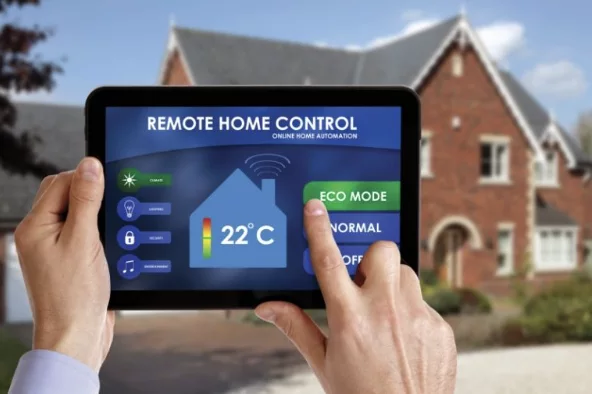
What are the types of smart heating systems?
There are different types of smart heating products and accessories that make up a smart heating system. Some can be used independently, and others need to be used together. The main types are:
Smart thermostats:
These are devices that connect your central heating system to the internet and allow you to control your heating remotely through an app or a website. They can also have learning and automation features, such as geofencing, weather sensing, or open window detection. Some smart thermostats can also control your hot water, as well as your central heating. Smart thermostats can either be wired or wireless and can either replace your existing thermostat or work alongside it. For a more in-depth view of smart thermostats, check my post here
Smart radiator valves:
These are devices that connect to your radiators, and allow you to control their temperature output remotely through an app or a website. They can also have learning and automation features, such as occupancy sensing, adaptive start, or child lock. Smart radiator valves enable you to create zonal control in your home, and heat only the rooms you need. Most smart radiator valves need to be connected to a smart hub, which is a device that connects all your smart heating devices to the internet and acts as a central controller.
Smart central heating control packs:
These are bundles of smart heating devices that include a smart hub, a smart thermostat, and one or more smart radiator valves. They are designed to work together as a complete smart heating system, and allow you to control your heating and hot water remotely and create zonal control in your home. They can also have learning and automation features, such as self-learning, presence detection, or voice control.
Smart electric radiators:
These are electric heaters that can be controlled remotely through an app or a website. They can also have learning and automation features, such as energy monitoring, adaptive start, or open window detection. Smart electric radiators are ideal for homes that do not have a central heating system, or for rooms that need extra heating, such as conservatories, garages, or lofts.
What are the features to look for when deciding how to choose smart heating
When choosing a smart heating system, you should consider the following features and factors:
Compatibility:
You should check if the smart heating system is compatible with your existing boiler, radiator, and heating system. You should also check if it is compatible with other smart home devices, such as smart speakers, lights, cameras, or security systems. You can find this information on the product’s website, manual, or packaging, or by contacting the manufacturer or retailer.
Installation:
You should check how easy or difficult it is to install the smart heating system, and whether you need a professional installer or not. Some smart heating systems are plug-and-play, and can be installed by yourself in minutes. Others may require wiring, drilling, or plumbing, and may need a qualified engineer or electrician to install them. You should also check if the installation is included in the price, or if you need to pay extra for it.
Cost:
You should compare the prices of different smart heating systems, and see which one offers the best value for money. You should also consider the running costs, and how much you can save on your energy bills by using a smart heating system. Some smart heating systems may have additional costs, such as subscription fees, maintenance fees, or battery replacements. You should also check if the smart heating system is eligible for any grants, discounts, or incentives, such as the Energy Company Obligation (ECO) scheme, the Renewable Heat Incentive (RHI) scheme, or the Smart Export Guarantee (SEG) scheme.
Main Players
There are 3 main manufactures of smart heating controls, nest mainly supply just the thermostat where as tado make the smart radiator controls also.
Nest around £150
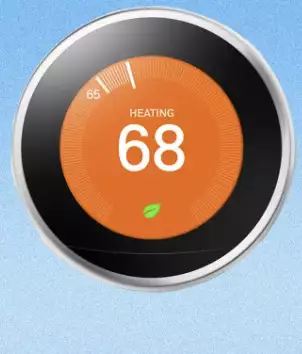
- AUTO-AWAY
- It automatically adjusts the temperature after you leave. It can even turn off your hot water if you’re away for a few days.
- HOT WATER
- Now you can control your hot water tank. And give your hot water a boost when you need it.
- AUTO-SCHEDULE
- Just turn it up and down. It learns the temperatures you like and creates a schedule for you.
Hive around £80
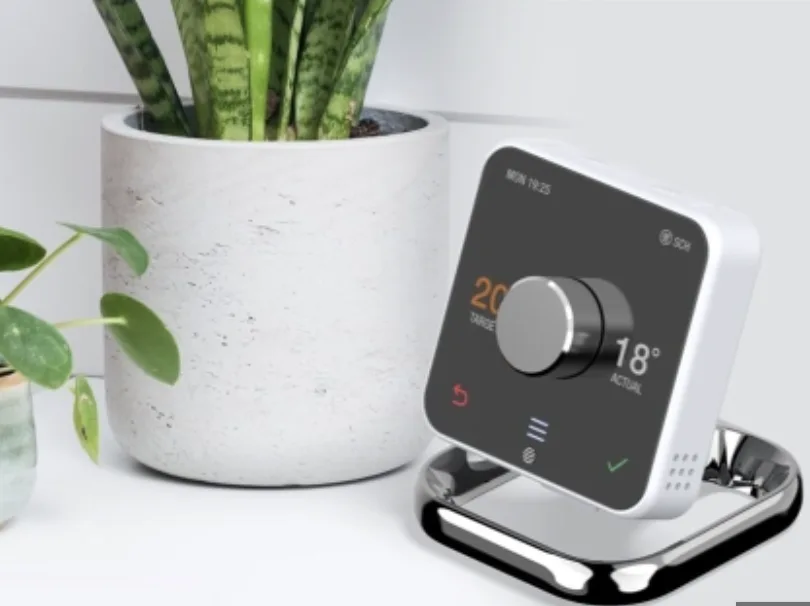
- Tap, talk or let Mini take care of it
- Set schedules and boost your heating all from the Hive app – or just ask Amazon Alexa or Google Assistant to do it for you. Then let Mini take care of the rest. If you need to, you can use its simplified controls to set the temperature and switch between modes.
- Left the heating on back home? We’ll tell you.
- With Geolocation, Mini knows if you’ve gone out and left the heating on – and sends you an instant reminder to turn it off. Or better yet, connect it to a Hive Door Sensor and it’ll automatically switch off when your front door closes. Handy.
Tado starter kit around £160
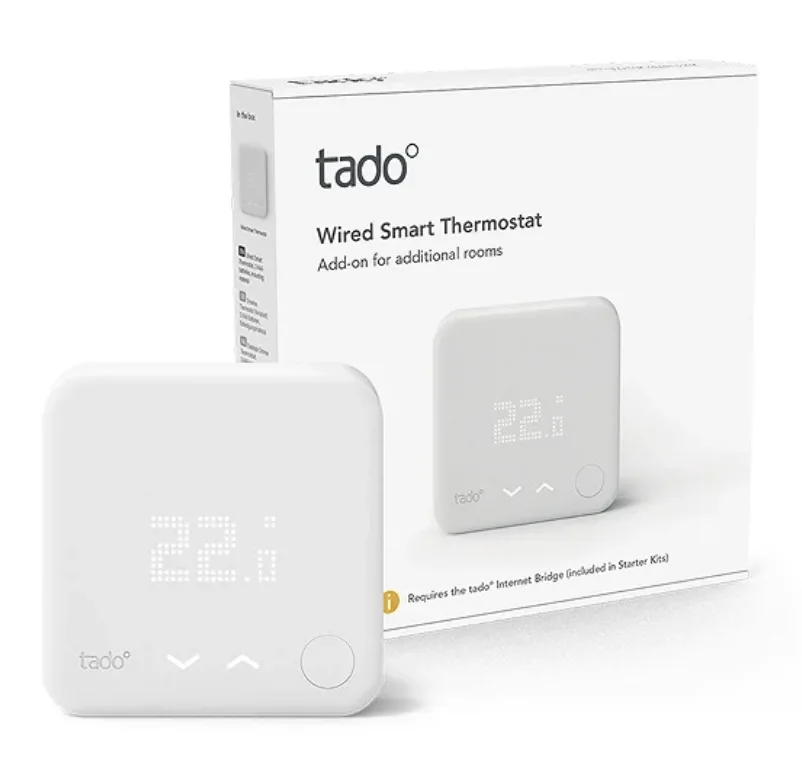
- Adapt your heating to suit your routine With the Smart Schedule, tado lets you plan your desired day and night time temperatures in time blocks based on your routine.
- Let the sun warm up your home tado takes local weather forecasts into account. It turns down the heating, if the sun is warming up your home, to save energy.
- Breathe healthier air with tado With the Air Comfort Skill, tado advises you on how to keep the air in your home healthy. It also gives you insights about the outdoor air quality.
- Never heat an empty home With Geofencing, tado reminds you to turn down the heating when the last person leaves home and to turn it up in time for the first person’s arrival.
Reviews:
You should read the reviews of other customers who have bought and used the smart heating system, and see what they think about its performance, quality, reliability, and customer service. You can find reviews on online platforms, such as Amazon, Trustpilot, or Which?, or on the product’s website or social media pages. You can also ask for recommendations from your friends, family, or neighbours who have smart heating systems in their homes.
Conclusion
Smart heating systems are devices that allow you to control your home’s temperature and heating schedule remotely through the internet. They can help you save money on your energy bills, reduce your carbon footprint, and make your home more comfortable and convenient. You should consider the benefits, types, features, compatibility, installation, cost, and reviews of different smart heating systems, and compare them to find the one that suits your needs and budget. You can also visit the websites of some of the leading smart heating brands, to learn more about their products and services.Don’t forget to always secure your smart home, to learn how check my guide here
Do i really need smart heating?
smart heating is usually the starting point for a smart home, most builders use smart heating in their new builds
Will I save money?
it all depends on how you run your heating now, if you manually go round your house 3 or 4 times a day adjusting each radiator that has no one in then probably no, if you don’t program your heating schedule properly and have your settings heating the whole house for 2 hours after you leave for work, then I’d say yes you would.
Can I install it myself
sometimes you can if say it’s a straight swap for a stat that’s wired the same, but if in doubt I would say get it installed professionally as some need senders wired into the boiler.

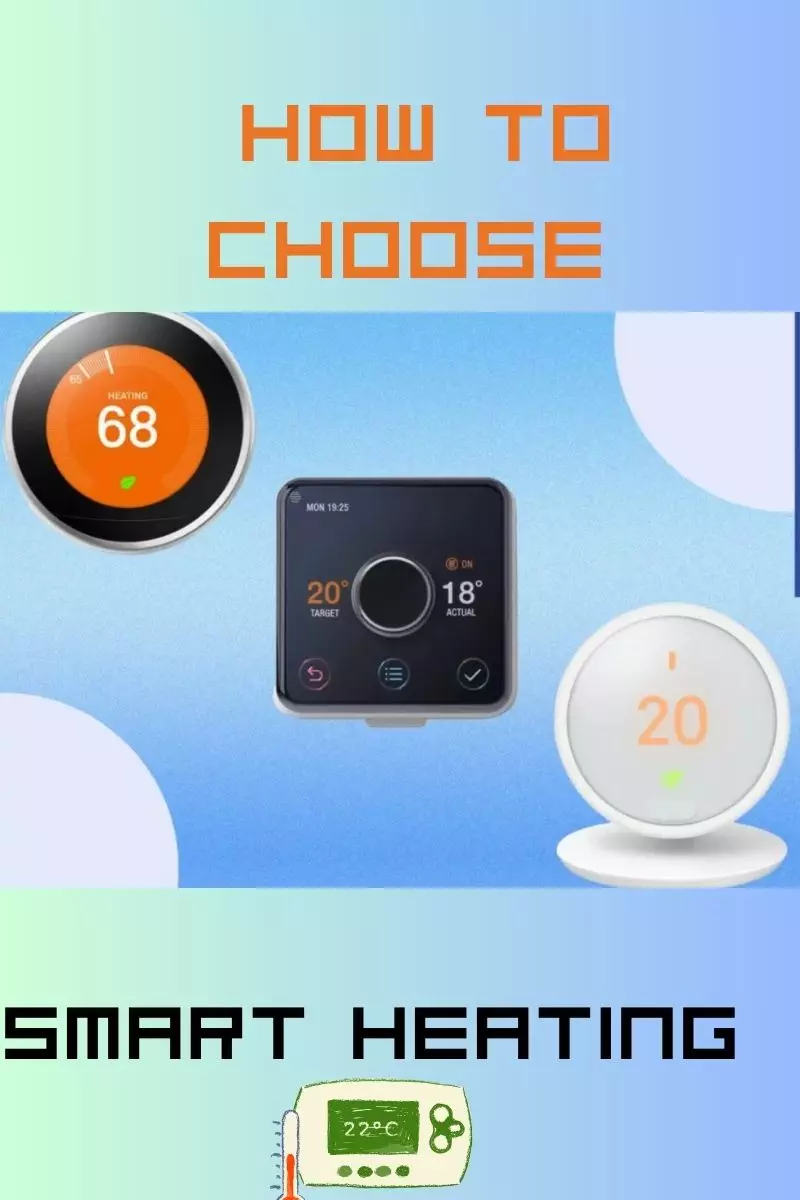



Pingback: The Top 5 Smart Gadgets You Need For 2024